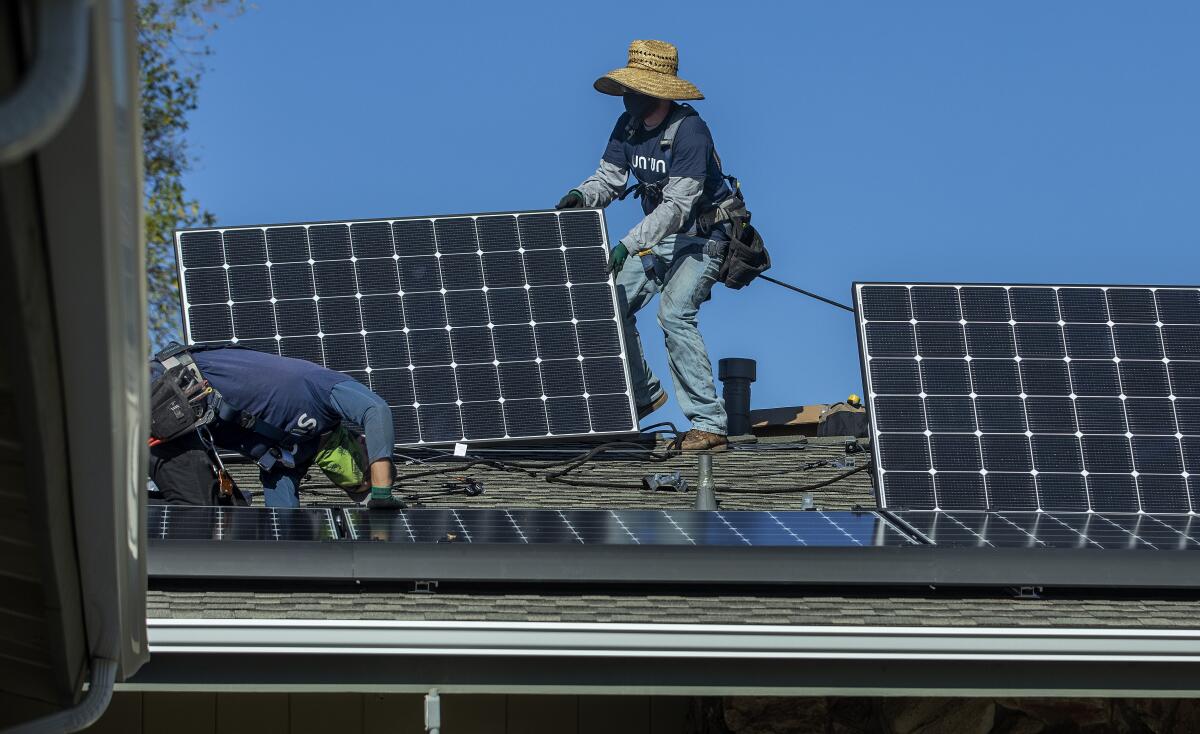California Backs Big Utilities, Reduces Incentives for Community Solar Projects

California’s utilities regulator has adopted new rules for community solar projects, despite warnings from clean energy advocates that these changes could hinder efforts to expand solar power options for low-income customers. The state’s largest utility companies pushed for these new regulations.
Community solar projects, which are small-scale local solar arrays, serve renters and homeowners who cannot afford to install their own rooftop solar panels. These projects are integral to California’s strategy to run the power grid entirely on renewable energy in the future.
In a 3-1 ruling, the California Public Utilities Commission (CPUC) expanded programs allowing ratepayers to subscribe to a pool of solar projects and receive a 20% rate reduction, according to Commission President Alice Reynolds. However, the ruling also reduces future compensation for solar providers and residents.
The CPUC calculates the benefits of distributed, small-scale solar power projects by assessing the “service” they provide in sending clean energy to the grid and reducing transmission costs for nearby communities. Solar developers are compensated based on the value of these benefits. The new formula adopted today reduces the value of distributed small-scale renewable energy in the future, providing less incentive for new community solar projects.
In the short term, the subsidies and incentives promoting community solar installation will remain, supported by a recent $250 million grant California received under the federal Solar For All program. However, solar advocates are concerned about what will happen once this funding runs out.
“The foundations of a sustainable program should not be built on one-time money,” said Derek Chernow, Western Regional Director for the Coalition for Community Solar Access.
While California has been a leader in promoting solar energy, its efforts to encourage smaller solar projects have been criticized. For instance, the state has not required community solar projects to include battery storage systems, which would allow power to flow after sunset.
“We are not done here today,” Reynolds said, noting that the programs can be modified and improved in the future.
With electric bills soaring, Reynolds also criticized the impact of “cost shift”—the idea that subsidies for community solar projects are costs borne by all ratepayers. This fairness argument has been used by the commission to justify reducing subsidies in other proceedings.
Advocates argue that reducing subsidies and other incentives for a still-maturing industry will result in fewer solar installations, ultimately excluding low-income ratepayers from the benefits of renewable energy. Community access solar programs are supposed to ensure that at least 51% of the energy derived from the projects serves disadvantaged customers.
Late last year, the commission overhauled incentives for owners of apartment buildings, schools, and businesses that install solar panels. These regulations were part of a series of recent decisions to reduce financial incentives for rooftop solar. In late 2022, the commission reduced payments to homeowners who sell excess power from newly installed solar panels on single-family homes.
Advocates criticize what they see as California’s lagging clean energy leadership and Governor Gavin Newsom for not holding the state’s powerful utilities and oil companies accountable. The CPUC’s community solar decision has added to concerns about backtracking on critical renewable energy policies.
“The CPUC’s recent series of decisions threatens to unravel California’s clean energy progress,” said the Solar Energy Industries Association in a statement. “It’s past time for Governor Newsom and state leaders to reign in the commission before it inflicts more damage on customers and the state’s clean energy economy.”
During the commission’s hearing, various organizations, including the solar industry and environmental justice groups, advocated for programs to expand access to clean energy and reduce power bills. Two state legislators voiced their opposition to the proposal, with Assemblymember Christopher Ward criticizing it as “fatally flawed” and not reflecting the intent of the legislation he authored.
Commissioner Darcie Houck, who voted against the decision, expressed concerns that the provisions would disincentivize solar adoption and fail to support a “just and equitable energy transition.”


